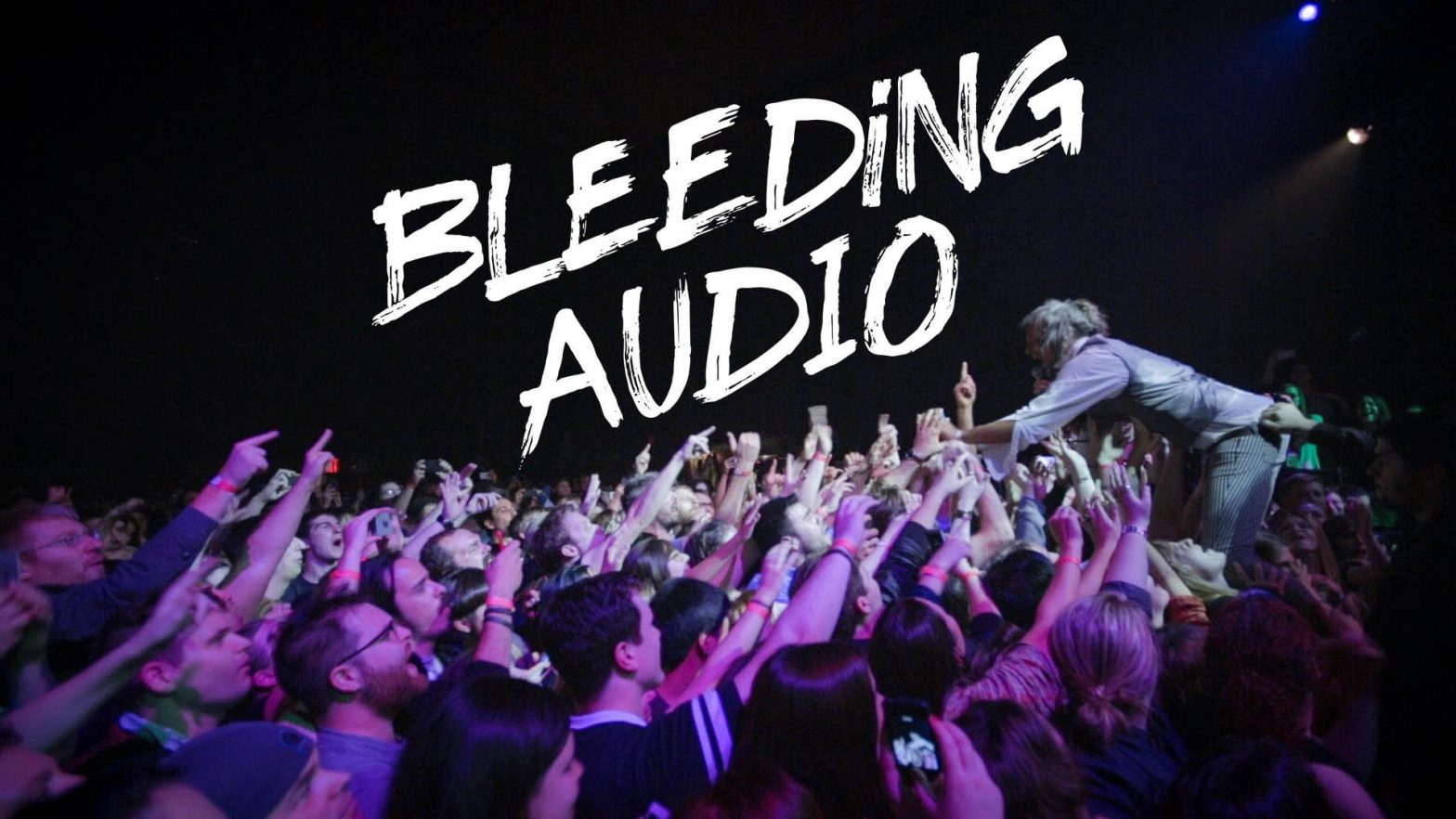For a music fan, there’s nothing more special than the one band they know and love, but that never quite made it big. For many people over the years, that band was Memphis’ Big Star. For many people who came of age in the ’00s, such as director Chelsea Christer, that band is The Matches.
Christer saw the band play an opening slot at a show in her native Colorado in 2005. “I was blown away by their performance and became an instant fan,” she recalls. “Then, when I moved to San Francisco for film school, I had a documentary project I had to do. They’re a Bay Area band, so I decided to shoot my shot and see if they’d let me do a little mini doc about them for my class project. I’ve been friends with them ever since. So when they let me know that they were going to reunite, I was already a member of the inside circle. So I was just like, ‘Hey, let me, let me help document this for you guys.’ And it just kind of snowballed from there.”
Her documentary Bleeding Audio had its world premiere at Cinequest Film and Creativity Festival in San Jose, California on March 7, 2020. “We had a little secret show afterwards, and it was the last live event that I’ve been to. It was amazing, but they announced they’re shutting down the festival the same day.”
A little more than a year later, Bleeding Audio will screen at the Oxford Film Festival’s in-person program on Saturday, March 27th, and on the festival’s virtual program throughout the month of April. Christer says the film is about more than The Matches. “I wanted to give fans the story that they didn’t know, and make a film that fans would love and appreciate. But to me, it’s always been very important to focus on a general audience and make sure that the narrative was constructed in a way that you could watch this film and whether you like The Matches, or you had no idea who they were. You could at least walk away feeling like you had enjoyed a really great story.”
The pop punk band released four albums from 1997 to 2009, and amassed a cult following with their relentless touring before succumbing to burnout. “I wanted to use their story almost like a case study to represent most artists who came up during that time,” says Christer.
During that period, digital music distribution overtook physical CD and album sales, disrupting the business model for musical acts, and tanking careers that would have been viable in the 1990s. “The Matches’ major career milestones line up, tragically, and beautifully, with how the digital age of music has played out. I found that while yes, they’re unique and they’re wonderful characters, they weren’t the only band that went through this. In our structuring and telling of the story, we wanted to make that abundantly clear that while The Matches coulda, woulda, shoulda, there were so many other bands out there that might not have the same kind of redemption story The Matches do.”
The tragedy of coulda, woulda, shouda is balanced by the punk ethos that helped the band thrive when they staged a comeback. “They always have this central focus on the community of their fans. It wasn’t rockstar-to-fan, it was always peer-to-peer. I feel like that that’s like a power that we have now, thanks to this digital leveling of the playing field. You can actually reach out to your fans and have this one-on-one relationship with them. The Matches were able to come back so strongly not just because the music stood the test of time, and they were talented, but also because they truly cared about their fan base in a way that helps emphasize the power of the community of music. You can become disconnected from that the more you grow in your career. The Matches just never had that ego.
“If there’s anything my own film taught me, and this experience taught the matches, it is that being an arena band and a household name is great and fun and a cool goal, but those benchmarks for success are not realistic for everybody. And while it’s fun to dream about that, I think we should all look internally and redefine what success means to us. If you can make a modest, sustainable living off of your art, that’s really exciting and, and should be celebrated. If that expands further, that’s great, but if you just have a group of people who are supporting you, that’s success, you know?”
Tickets and passes to the Oxford Film Festival are available from the festival website.

 Brandi Schulz
Brandi Schulz